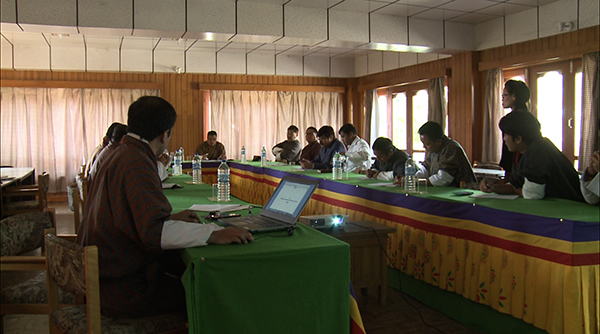 High voltage consumers in the country who are mostly Ferro-silicon industries will be asking the government to consider providing them subsidised electricity with most of them finding it increasingly difficult to break even.
High voltage consumers in the country who are mostly Ferro-silicon industries will be asking the government to consider providing them subsidised electricity with most of them finding it increasingly difficult to break even.
The business community met at the capital today to discuss on the draft domestic power tariff policy and provide suggestions and feedback to the government.
Providing subsidy to industries was a suggestion the Bhutan Chamber of Commerce and Industry will submit to the government. According to the economic development policy, high voltage consumers are not eligible for subsidy.
The general secretary of the industrialists association of Bhutan, Jochu Thinley, quoting a research paper, said subsidising industrialists would lead to five times value addition in the economy.
During the meeting, a private sector representative said, once Punatshangchhu I, and Mangdechhu hydropower projects are commissioned, the government will be left with enough royalty energy in their hands to subsidise even the high voltage users.
A total of 6.8 billion worth of subsidy will be available for the government and the low voltage consumers will be using up only half the amount, which means the rest can be utilised in subsidising industries.
The business community also discussed moving away from a cost plus model of computing electricity tariff to price cap method as the former provided room for inefficiency.
A suggestion for a representative from the business community at the Bhutan Electricity Authority and the Economic Affairs Ministry will also be put forward to the government.
The business community is also suggesting that the domestic price of electricity should always be lower than export price. Today, electricity tariff for high voltage users are more than the export price.







